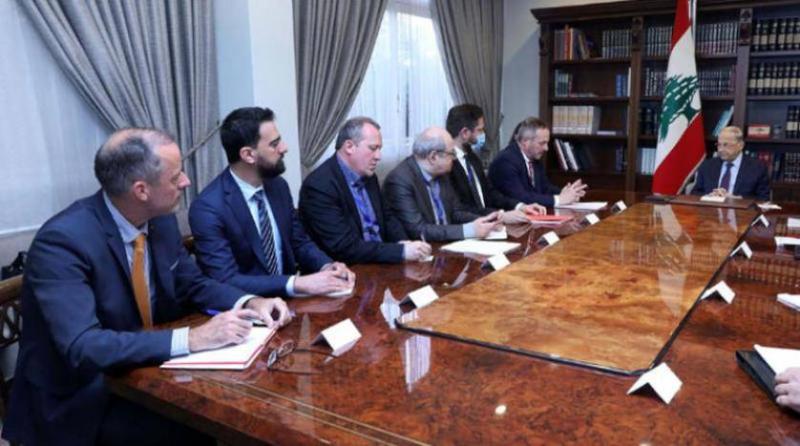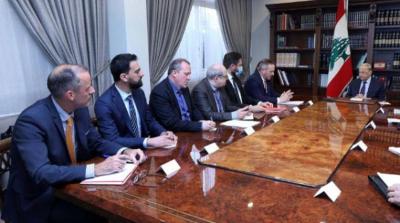The Head of the European Union Election Observation Mission for the Lebanese elections, Georgi Holvini, announced that "around 200 observers will undertake this task with professionalism, transparency, and neutrality." He noted that "their mission will cover all Lebanese regions, and they will prepare a detailed report on their observations, as was done in the previous electoral cycle."
Holvini was informed by Lebanese President Michel Aoun during their meeting yesterday (Thursday) that "Lebanon welcomes the European Union's monitoring of the upcoming parliamentary elections" scheduled for May 15, similar to the elections held in 2005, 2009, and 2018. Aoun told Holvini that "all arrangements have been made to conduct the elections on time in an atmosphere of freedom, democracy, and transparency," highlighting that the number of candidates, including women, has reached a record high.
The parliamentary elections for residents in Lebanon are set for May 15. The deadline for registering electoral lists closed last Monday, with a total of 103 lists including 718 candidates competing for 128 parliamentary seats across Lebanon, following the withdrawal of 42 candidates, while 284 candidates did not join any list and are thus considered withdrawn.
Aoun affirmed that "efforts are underway to overcome obstacles to achieve this important constitutional obligation despite Lebanon's difficult economic and financial conditions." He emphasized "the importance of enhancing the oversight of campaign financing and enabling the election monitoring authority to fully perform its role in supervision."
Holvini also confirmed that "around 200 observers will undertake this task with professionalism, transparency, and neutrality," adding: "They will begin their work before the elections and continue afterward, covering all Lebanese regions, and they will prepare a detailed report on their observations, as was done in the previous electoral cycle." He noted that "members of the mission will also monitor the election process in several European countries under the same standards and rules that will apply in Lebanon." The first batch of the mission arrived on March 27 and will remain until June 6, after the elections, and will publish recommendations at a later stage. Holvini pointed out that "the European Union monitored elections in 2005, 2009, and 2018," confirming that "the mission will conduct a comprehensive analysis of the electoral process taking place on May 15, based on the long-term monitoring covering all Lebanese regions." He stated that "our final report will include the final evaluation of the electoral process as well as recommendations for possible reforms in future electoral operations."
During the delegation's meeting with Lebanese Prime Minister Najib Mikati, Holvini mentioned that "extensive discussions regarding the mechanism for monitoring the upcoming parliamentary elections" took place with Mikati, adding: "I presented to him the main objective of the European Union mission." He announced that "the mission of the European Union relies on conducting monitoring work with professionalism and independence, covering all polling centers in all Lebanese regions, and our expertise is based on similar operations we have carried out in more than 15 European countries." He stressed the importance of dialogue in any type of discourse, indicating that they will continue their rounds and meetings with political officials, parties, and other Lebanese forces to familiarize them with their specific mission of monitoring the upcoming elections.




